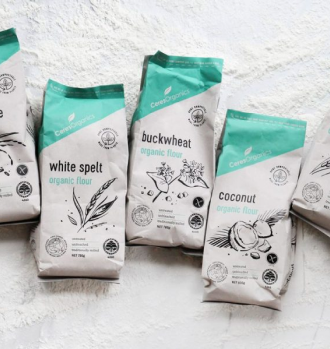
As many of us acknowledge the power that our health has on our overall quality of life, small but subtle changes can push us closer to the nirvana of health. Ensuring we include a variety of foods, from all food groups creates a spectrum of nutrients our bodies can thrive on. Fibre rich diets have been shown to have many benefits, and can be attained through small dietary changes or additions.
Dietary fibre is connected to an abundance of health benefits that cover an array of aspects of ones health.
There are two types of dietary fibre found in foods
-
Soluble fibre: dissolves in water and can be broken down and metabolised by the "good" bacteria in the gut – in other words this fibre is fermentable.
-
Insoluble fibre: this type of fibre does not dissolve in water. It has benefits as soluble fibre does, but it is not fermentable in the gut.
Why is fibre so essential for gut health?
An interesting role that fibre plays is in gut health. Fibre is one of the core reasons have a diet abundant with plants is health promoting, given they are enriched with fibre. Many of the benefits that are associated with fibre are mediated by the microbiotic in your gut – the millions of bacteria that are located throughout your digestive system.
When it comes to the way in which our bodies digest of food, most carbohydrates, fats and proteins are absorbed straight into our blood – leaving not much substance for our gut bacteria to utilise. This is where fibre has a central role in feeding the good gut bacteria.
The types of bacteria that are held in our gut have enzymes that have the specific role to break down and digest dietary fibre. These good bacteria digests fibre and consequently produce nutrients for the body. Short-chain fatty acids (SCFA) is one of the nutrients produced and research has suggested that these SCFA improve digestive disorders and reduce gut inflammation.
What are the other health benefits of fibre?
- Reducing blood sugar spikes. This is due to the low glycaemic index found in most fibres – this can be very effective when managing blood sugar level related diseases such as diabetes.
- Some types of fibre can potentially assist with reducing cholesterol. Soluble fibre can reduce the absorption of cholesterol into the bloodstream (found in foods such as kidney beans, Brussel sprouts, apples and pears). Another example is oatmeal which reduces your low-density lipoprotein (LDL) cholesterol also known as the "bad" cholesterol.
- Fibre can assist in alleviating digestive problems. Fibre has a high water absorption, thus keeping our digestive system well hydrated. This plays a part in assisting the movement of food through our digestive system.
- Research also strongly suggests that fibre can reduce your risk of certain cancers. This is due to the constituents of fibre but even more powerfully when consumed through foods that are rich in antioxidants and phytochemicals that further promote health.
- Some types of fibre are known to be pre-biotics (such as asparagus, soybeans, oats) and can increase the bioavailability of minerals such as calcium, which may help maintain healthy bones.
Having a balanced and holistic approach to nutrition and food can alleviate the, what can sometimes feel like, a seesaw of health. Including a variety and well-balanced diet, with foods from all food groups is important as it provides us with different types and amounts of key nutrients for health.
What are some good sources of fibre?
Soluble
- Oats
- Legumes such as lentils, peas and beans
- Vegetables such as broccoli, carrots, potatoes, kumara and sweetcorn
- Fruit such as apples, berries, oranges, stone fruit and pears
Insoluble
- Wholegrain cereals
- Breads - look for wholemeal and mixed grain
- Wholegrain cereals
- Psyllium Husk
- Brown Rice
- Corn
- Fruit & Vegetables
Watch this great smoothie recipe to add more fibre to your diet:
[embed]https://www.youtube.com/watch?v=v_UN_3De1t8&feature=youtu.be[/embed]














